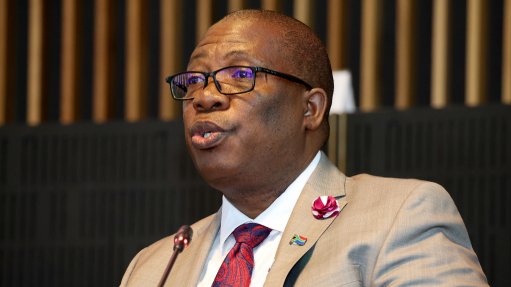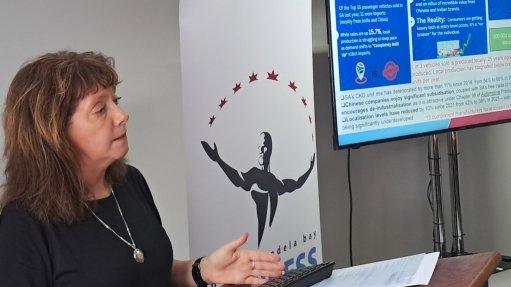IATA highlights billions in costs to airlines of aircraft assembly supply chain delays
Disruptions in the airliner manufacturing supply chain are costing the world’s airlines billions of dollars, the global representative body for the airline industry, the International Air Transport Association (IATA), has highlighted. On Monday, it, in collaboration with international management consultancy Oliver Wyman (part of the Marsh McLennan group), released their joint report 'Reviving the Commercial Aircraft Supply Chain'.
The problems in the airliner and aero-engine supply chain are delaying the assembly of new aircraft and spare parts. In turn, this is forcing carriers to review their fleet modernisation plans and often forcing them to keep operating older airliners. Last year, the order backlog for new airliners reached its highest ever level, at 17 000. In comparison, from 2010 to 2019 the average annual backlog had been about 13 000 aircraft.
“Airlines depend on a reliable supply chain to operate and grow their fleets efficiently,” explained IATA director-general Willie Walsh. “Now we have unprecedented waits for aircraft, engines and parts and unpredictable delivery schedules. Together these have sent costs spiralling by at least $11-billion for this year and limited the ability of airlines to meet consumer demand. There is no simple solution to resolving this problem, but there are several actions that could provide some relief. To start, opening the aftermarket would help by giving airlines greater choice and access to parts and services. In parallel, greater transparency on the state of the supply chain would give airlines the data they need to plan around blockages while helping OEMs [original equipment manufacturers] to ease underlying bottlenecks.”
The cost increase for the airlines last year was driven by four major factors. The higher fuel costs caused by having to continue operating older, less efficient, airliners, came to about $4.2-billion. Older aircraft also needed more maintenance, and the cost of this extra maintenance came to $3.1-billion. Older engines also needed more maintenance, which meant that they had to spend more time on the ground, requiring airlines to lease more engines to keep their aircraft flying; moreover, lease rates have increased by 20% to 30% since 2019; the overall result has been a cost increase of $2.6-billion. Finally, because of the unpredictable disruptions in the supply of spare parts, airlines have increased their spares inventories, to give themselves a cushion against supply failures; keeping this extra inventory cost $1.4-billion.
“Today’s aircraft fleet is larger, more advanced, and more fuel efficient than ever before,” highlighted Oliver Wyman Transportation and Advanced Industrial practice partner Matthew Poitras. “However, supply chain challenges are impacting airlines and OEMs alike. We see an opportunity to catalyse an improvement in supply chain performance that will benefit everyone, but this will require collective steps to reshape the structure of the aerospace industry and work together on transparency and talent.”
The report called for the aerospace industry to consider four major proposals. The first of these (in IATA’s listing) is to open up the aftermarket – to reduce the dependence of maintenance, repair and overhaul centres on OEM-driven commercial licensing, and to help them obtain alternative materials supplies and services. Enhancing the visibility of the supply chain is next; this would require greater transparency across the entire supply chain, to cut inefficiencies and bottle necks, as well as to allow early identification of risks, and also employ improved data and tools to increase reliability and resilience. Third, data should be used to unlock value, through allowing predictive maintenance, spare parts pooling, and optimising inventory by establishing shared maintenance data platforms (thereby cutting downtime). Finally, repair and spare parts capacity should be expanded, to allow faster approval of repairs, facilitate the use of alternative parts and Used Serviceable Materials, as well as easing bottlenecks by the use of advanced manufacturing.
Article Enquiry
Email Article
Save Article
Feedback
To advertise email advertising@creamermedia.co.za or click here
Announcements
What's On
Subscribe to improve your user experience...
Option 1 (equivalent of R125 a month):
Receive a weekly copy of Creamer Media's Engineering News & Mining Weekly magazine
(print copy for those in South Africa and e-magazine for those outside of South Africa)
Receive daily email newsletters
Access to full search results
Access archive of magazine back copies
Access to Projects in Progress
Access to ONE Research Report of your choice in PDF format
Option 2 (equivalent of R375 a month):
All benefits from Option 1
PLUS
Access to Creamer Media's Research Channel Africa for ALL Research Reports, in PDF format, on various industrial and mining sectors
including Electricity; Water; Energy Transition; Hydrogen; Roads, Rail and Ports; Coal; Gold; Platinum; Battery Metals; etc.
Already a subscriber?
Forgotten your password?
Receive weekly copy of Creamer Media's Engineering News & Mining Weekly magazine (print copy for those in South Africa and e-magazine for those outside of South Africa)
➕
Recieve daily email newsletters
➕
Access to full search results
➕
Access archive of magazine back copies
➕
Access to Projects in Progress
➕
Access to ONE Research Report of your choice in PDF format
RESEARCH CHANNEL AFRICA
R4500 (equivalent of R375 a month)
SUBSCRIBEAll benefits from Option 1
➕
Access to Creamer Media's Research Channel Africa for ALL Research Reports on various industrial and mining sectors, in PDF format, including on:
Electricity
➕
Water
➕
Energy Transition
➕
Hydrogen
➕
Roads, Rail and Ports
➕
Coal
➕
Gold
➕
Platinum
➕
Battery Metals
➕
etc.
Receive all benefits from Option 1 or Option 2 delivered to numerous people at your company
➕
Multiple User names and Passwords for simultaneous log-ins
➕
Intranet integration access to all in your organisation





















